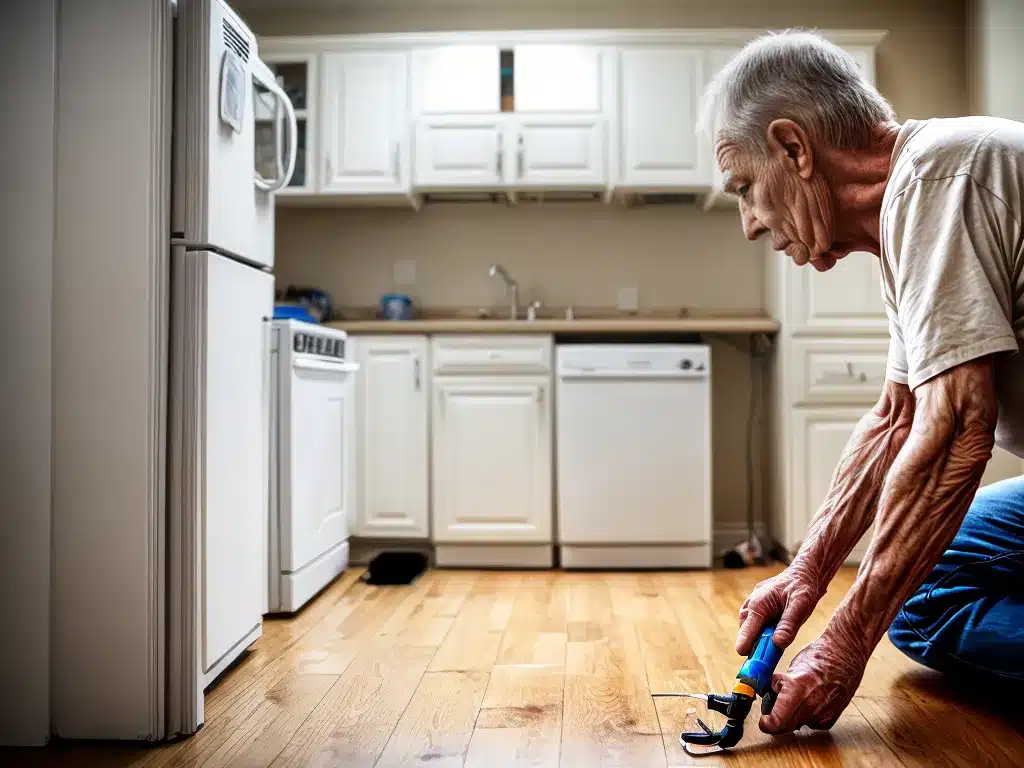 Older Homes“” />
Older Homes“” />
The Dangers of Using 3-Prong Plugs in Older Homes
I’m writing this article to inform homeowners of the potential dangers associated with using 3-prong plugs in older homes that may not be properly wired to support them. As someone who has experienced electrical issues in my own older home, I want to share what I’ve learned to help others avoid risks.
Why 3-Prong Plugs Can Be an Issue in Older Homes
Most modern appliances and electronics require a 3-prong plug to function safely. 3-prong plugs have three prongs: two hot prongs for power, one grounding prong for safety. The grounding prong connects to the earth to prevent electric shocks and to trip circuit breakers in the event of a short circuit or overloaded circuit.
However, older homes built before the 1960s may not have electrical systems designed to support 3-prong plugs. These homes likely have 2-prong ungrounded outlets and may not have a proper grounding wire running through the electrical system. Plugging a 3-prong plug into an ungrounded 2-prong outlet can bypass the appliance’s grounding system and pose risks.
Key Dangers of Using 3-Prong Plugs in 2-Prong Outlets
Plugging a 3-prong appliance into a 2-prong outlet presents several notable risks:
-
Electric shock – No grounding pathway means if a short occurs, electricity could flow through your body to the ground. This can cause serious electric shock injuries.
-
Fire hazard – Faulty appliances can overheat and spark without properly functioning grounding. This can ignite fires inside walls undetected.
-
Damage to appliances – Surges in power can damage electronics without grounding to absorb the spike. Grounded cords protect internal components.
-
Incorrect grounding – Sometimes a 3-prong cord may be installed improperly, with the ground prong connected to neutral. This disables safety mechanisms.
Signs You May Have Improperly Grounded 3-Prong Plugs
If you have 3-prong appliances plugged into outlets in an older home, be alert for any of the following signs of potential improper grounding:
- Minor shocks from appliances like refrigerators or lamps
- Frequent tripping of circuits or blown fuses when using appliances
- Tingling from metal surfaces of appliances when touched
- GFCIs or AFCIs frequently tripping
- Flickering lights or lights dimming when appliances turn on
- Buzzing or humming from appliances or electrical panels
Any of these are indicators you could benefit from having your home’s electrical system evaluated and potentially updated.
Options for Safely Using 3-Prong Appliances in an Older Home
If your older home lacks grounded outlets, you have a few options to reduce risks when using 3-prong plug devices:
-
Install GFCI outlets – Replacing ungrounded outlets with GFCI (ground fault circuit interrupter) outlets provides protection from shocks. However, it does not eliminate all risks like fires or equipment damage.
-
Use a GFCI outlet adapter – Adapters allow you to plug a 3-prong appliance into an ungrounded 2-prong outlet while providing GFCI protection. Test them regularly.
-
Install grounding wires – Hiring an electrician to install grounding wires and grounded outlets provides full 3-prong capacity and is safest. This can be expensive but is worth considering.
-
Use surge protectors – Quality surge protectors can absorb power spikes, adding some protection for electronics. However, they don’t replace proper grounding.
When to Call an Electrician
If you suspect your home’s electrical system is not adequately grounded for 3-prong devices, call a licensed electrician for an evaluation. It’s wise to get professional help:
- If you frequently feel shocks from appliances
- If GFCIs or breakers often trip for no reason
- If lights flicker when large appliances run
- If buzzing or humming comes from switches/outlets
- If the home is very old, e.g. built before 1960
- If there are no evident grounding wires/pipes
Electricians can assess wiring, check grounding, and offer solutions like installing new grounded outlets or full rewiring if needed. Though expensive, this investment in safety is often worthwhile.
Some electrical issues are simple DIY fixes, but improper grounding in older homes usually requires professional correction. Don’t take risks with outdated wiring. Consult an expert to keep your home and family safe.
Bottom Line
It’s vital to be cautious when using 3-prong devices in older homes without grounded outlets. Whileadapters provide some protection, fully updating wiring provides the safest and most robust solution. If you suspect grounding issues in your home’s electrical system, contact a licensed electrician right away to perform an inspection and repairs as needed. Don’t play guessing games with electrical safety hazards.
